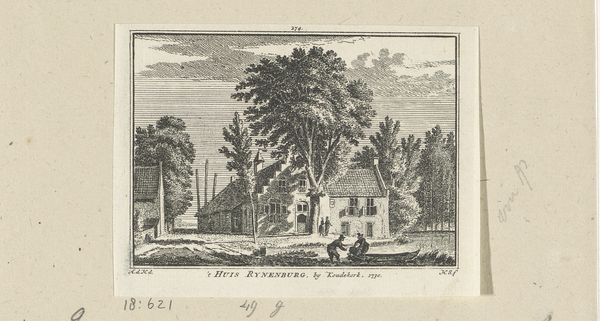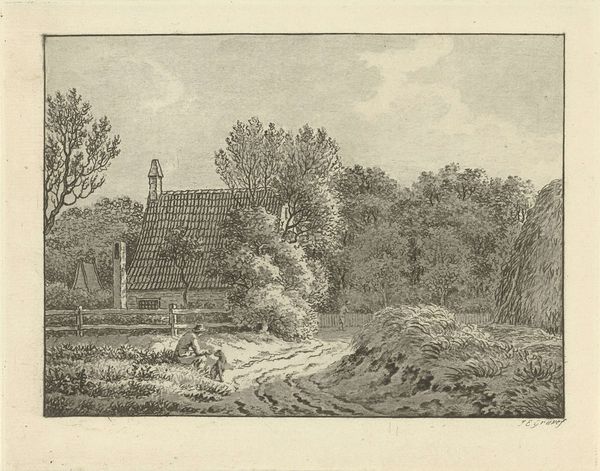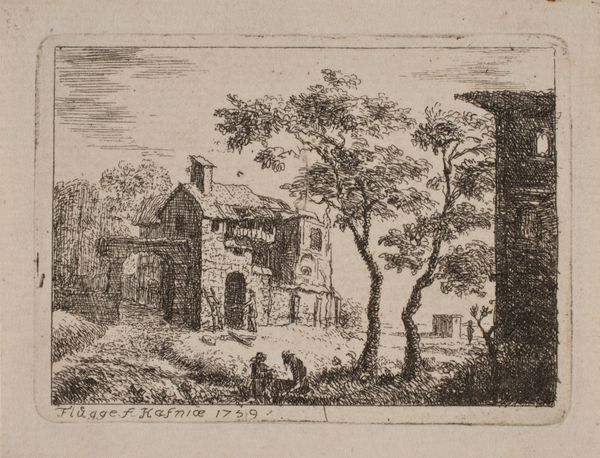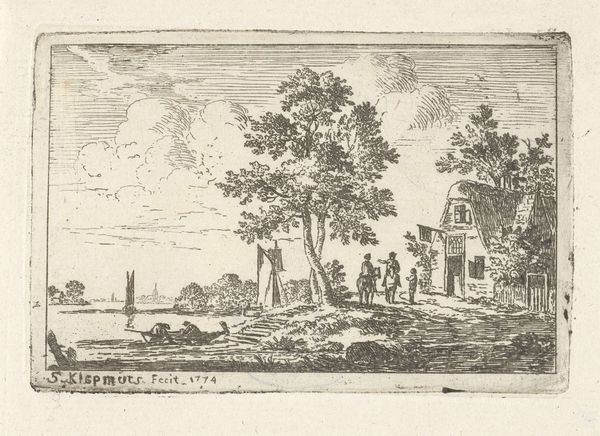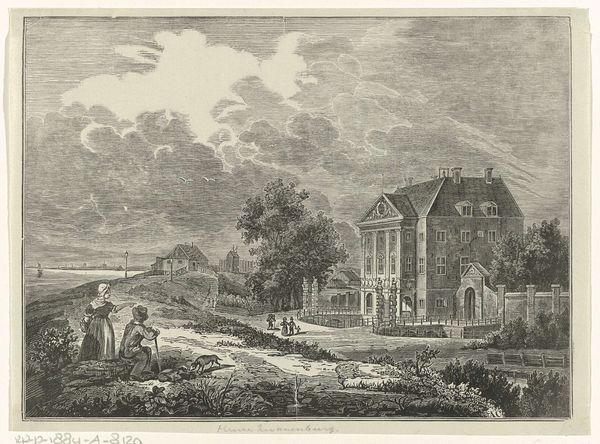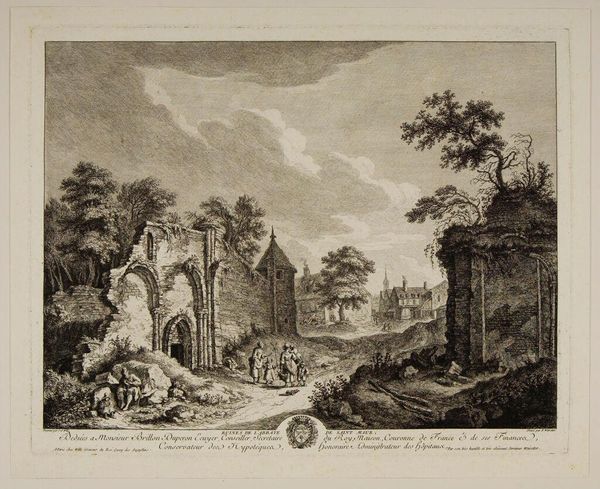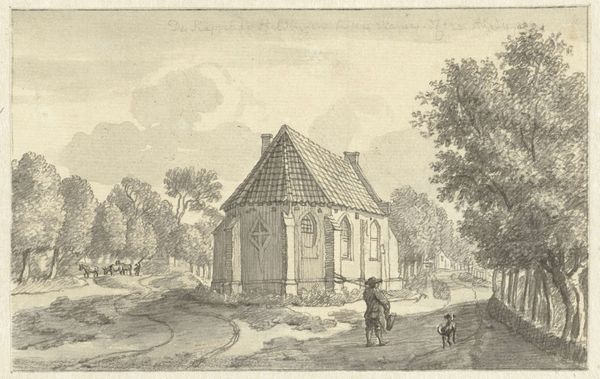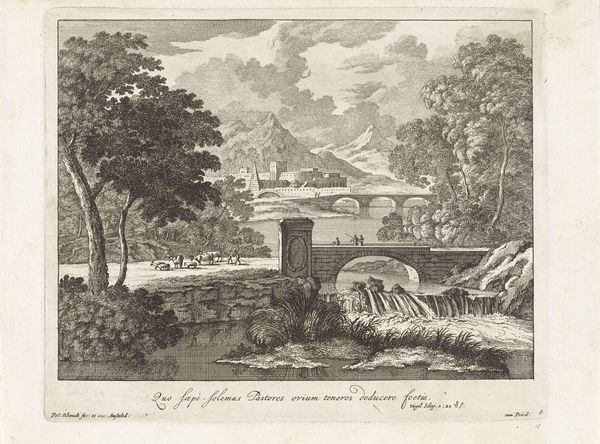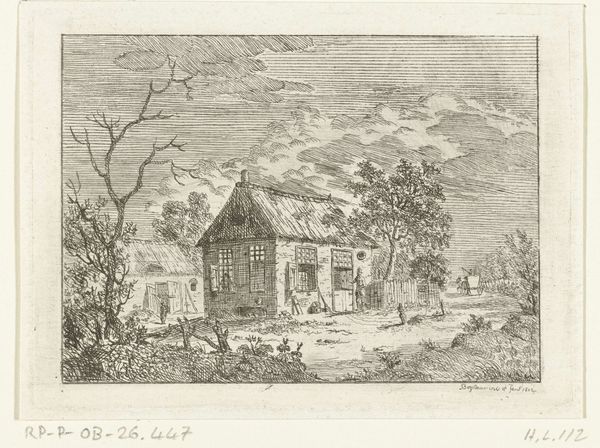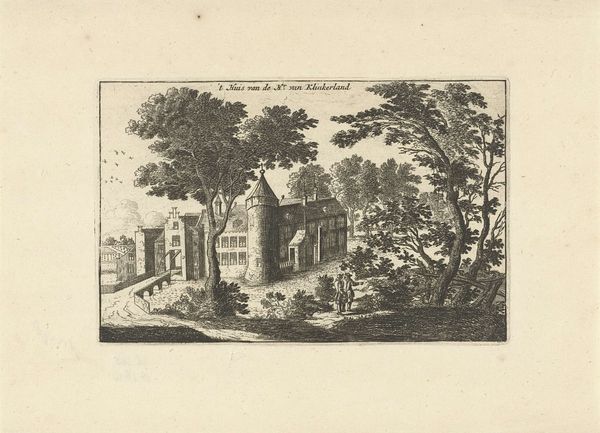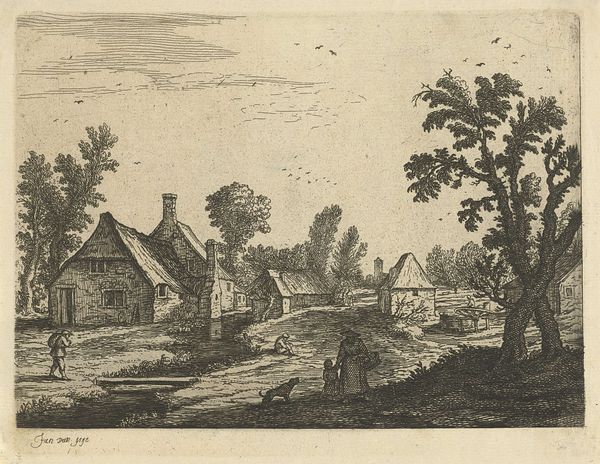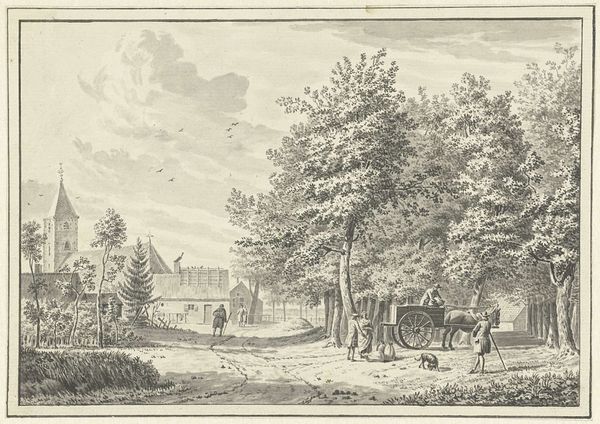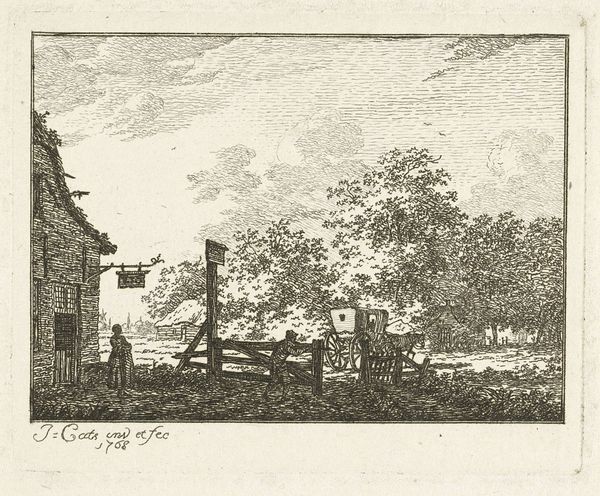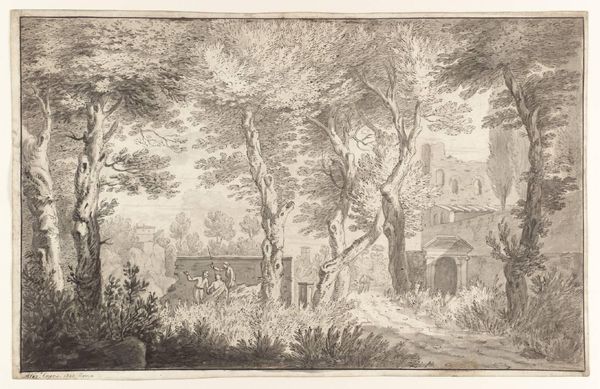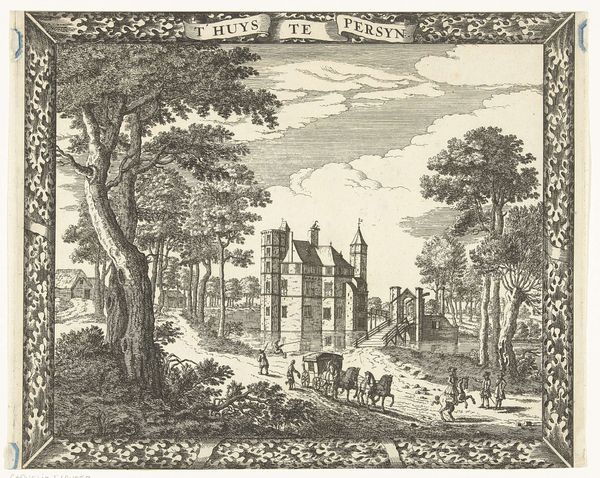
drawing, engraving
#
drawing
#
dutch-golden-age
#
landscape
#
cityscape
#
engraving
Dimensions: height 80 mm, width 115 mm
Copyright: Rijks Museum: Open Domain
Abraham Rademaker created this etching, "Gezicht op een oude poort in Zeist," around 1630. The dominant visual experience is a study in contrasts—between the solid, textured stone of the old gate and the airy, almost whimsical rendering of the trees and sky. This contrast might evoke a sense of time's passage and the interplay between the built environment and nature. Rademaker employs a semiotic system where the crumbling gate signifies decay and the relentless march of time, while the vibrant foliage represents enduring natural life. The artist destabilizes conventional landscape depictions by positioning architecture as a focal point that nature embraces and erodes, questioning fixed ideas about permanence and change. Notice the subtle lines and textures that define the clouds and brickwork, which function not just aesthetically, but as part of a larger discourse on the relationship between humanity and its surroundings. As you consider this artwork, recognize that its meaning remains open, inviting ongoing interpretation and discourse on how we perceive our world.
Comments
No comments
Be the first to comment and join the conversation on the ultimate creative platform.
